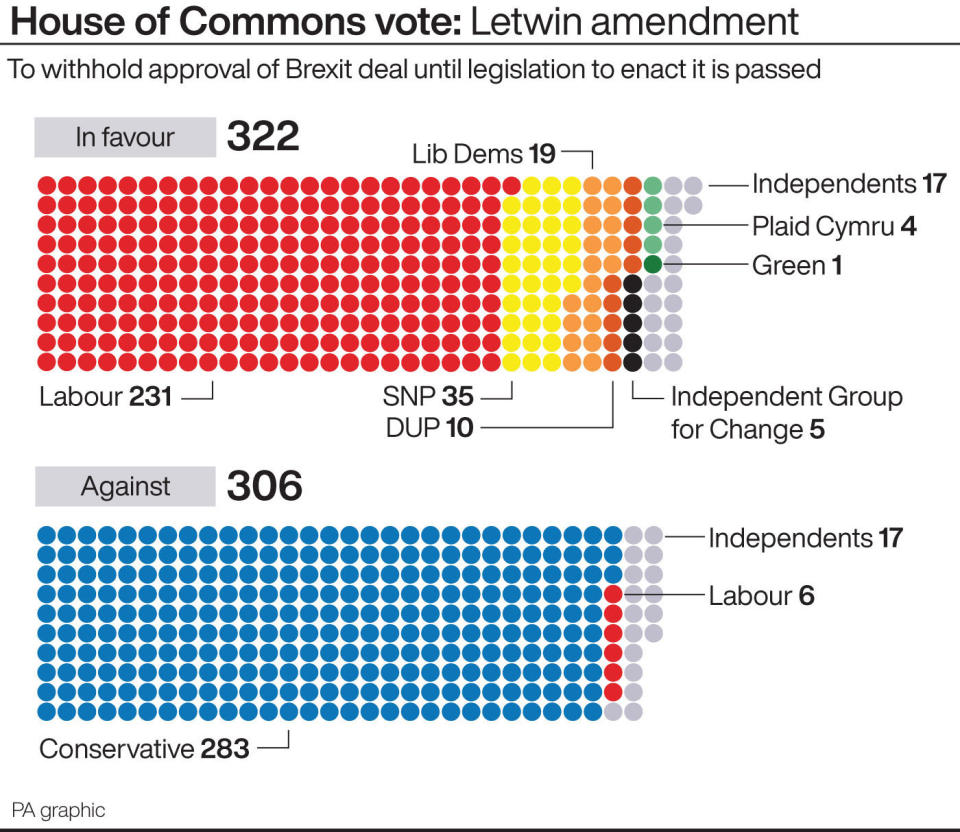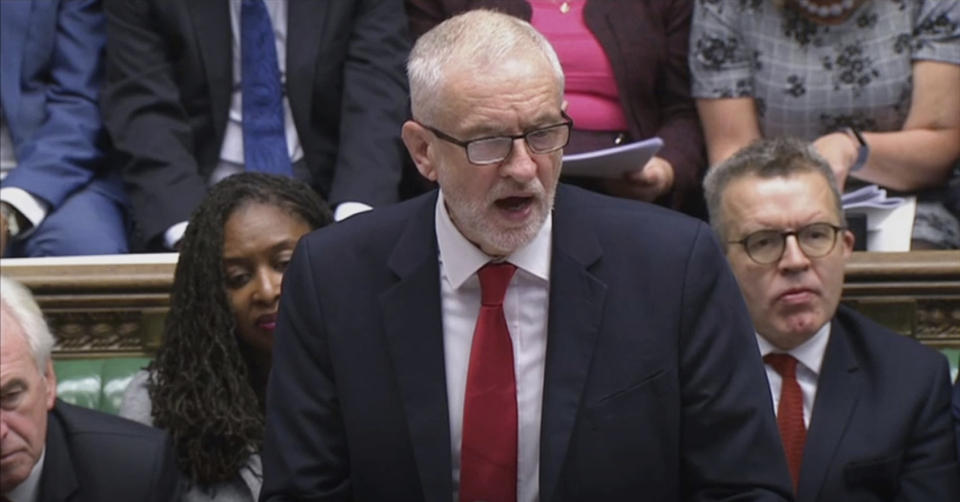Boris Johnson requests Brexit delay after Commons defeat - but urges EU to reject it
Boris Johnson has sent a letter to the EU requesting a Brexit extension - but urged European leaders to reject the delay.
The Prime Minister is understood to have sent an unsigned photocopy of a delay request, distancing himself by stressing it is “Parliament’s letter” and not his.
He also sent a covering letter making clear he does not want an extension calling the idea “deeply corrosive”, as well as individual letters to the heads of each EU27 country encouraging them to say no to a delay.
Mr Johnson hopes to force through his Brexit deal by relying on the EU to turn down an extension after he suffered a significant defeat in the House of Commons on Saturday.

MPs voted by 322 to 306 in favour of an amendment brought by former Cabinet minister Sir Oliver Letwin that withholds Parliament’s approval for the PM’s deal until legislation to implement it is in place.
In practice this meant the PM was obliged by law - the Benn Act - to ask the EU for a delay to the Brexit deadline by 11pm on Saturday night.
The Prime Minister wrote to MPs saying he would get around this by sending the letter but telling the EU that “further delay is not a solution”.

EU Council President Donald Tusk said he had received the letter and would consult with European leaders, after tweeting earlier that he was “waiting for” the document.
The extension request has just arrived. I will now start consulting EU leaders on how to react. #Brexit
— Donald Tusk (@eucopresident) October 19, 2019
Waiting for the letter.
I just talked to PM @BorisJohnson about the situation after the vote in the House of Commons.— Donald Tusk (@eucopresident) October 19, 2019
Amid noisy Commons scenes, Mr Johnson insisted he was not “daunted or dismayed” by the result of today’s vote and remained committed to taking Britain out by October 31.
“I will not negotiate a delay with the EU, neither does the law compel me to do so,” he said.
The Conservative Party confirmed the PM’s stance in a tweet.
#BREAKING: Parliament has voted to delay Brexit again. The Prime Minister will not ask for a delay -- he will tell EU leaders there should be no more delays and we should get Brexit done on October 31st with our new deal so the country can move on. pic.twitter.com/5EE69IuhUO
— Conservatives (@Conservatives) October 19, 2019
What’s next?
MPs are likely to vote next week on Boris Johnson’s Brexit deal instead of holding the crunch vote that had been expected to happen on Saturday evening, but was pulled after MPs voted against the government.
Commons Leader Jacob Rees Mogg said the Government is planning to give MPs a chance to have a meaningful vote on Monday. But he was accused of an “outrageous stunt” after tabling the same motion that had just been pulled.

There remains the possibility - albeit a remote one - that the UK could still leave under the terms of Mr Johnson’s deal by Halloween if he can force through the legislation in the next two weeks.
Sir Oliver Letwin said he intends to vote in favour of Mr Johnson’s deal when the bill is brought next week, and that his amendment has ruled out the possibility of crashing out without a deal if the bill is derailed - deliberately or not.
He said: “Now, when the Prime Minister brings the Withdrawal Implementation Bill to the house of Commons, we will be voting for it, we will continue to vote for it. We will seek to ensure that it becomes the law before October 31. And if it does so become the law, this country will leave on October 31.
“A hope that I share with the Prime Minister, but it will do so on the basis of knowing should anything go wrong, we will not crash out without a deal on that date.”

A Government source had earlier said: “A vote for Letwin is a vote for delay. The public would be appalled if MPs just vote for another pointless delay again.”
Labour, however, confirmed that it was supporting the amendment. Shortly before the vote, the DUP also confirmed they would not be backing the government over the Letwin amendment.
Would the EU agree to an extension?
Despite European Commission president Jean-Claude Juncker raising doubts over another Brexit delay, the decision needs to be taken by all 27 remaining EU states, not him.
However, the EU could set a different length to an extension, either shorter or longer than the three-month one cited in the Benn Act.
The EU could decide not to formally respond to such a letter from the PM until it sees if Mr Johnson can get the Withdrawal Agreement Bill through Parliament next week.

Who said what?
Prime Minister Boris Johnson
“Now is the time, Mr Speaker, to get this thing done, and I say to all members let us come together as democrats to end this debilitating feud, let us come together as democrats to get behind this deal, the one proposition that fulfils the verdict of the majority, but which also allows us to bring together the two halves of our nation.”
Jeremy Corbyn
“I also totally understand the frustration and the fatigue across the country and in this House, but we simply cannot vote for a deal that is even worse than the one the House rejected three times.”

